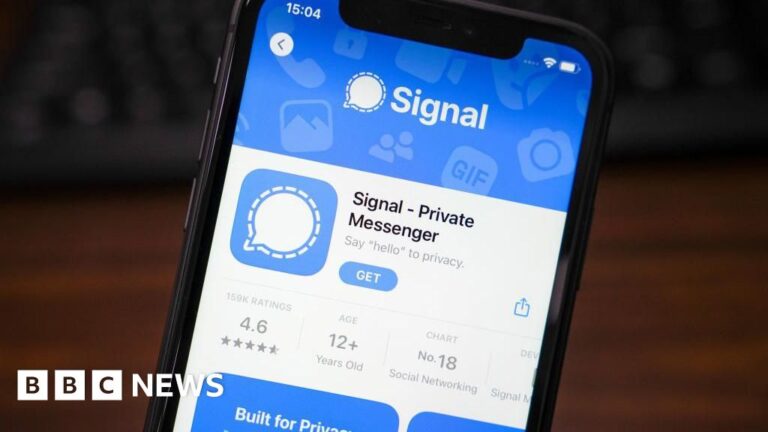Here is the result in plain text:
On Jan. 18, I was one of millions of Americans scrolling through TikTok when service for the all-you-can-binge video buffet suddenly halted just before a federal government ban went into effect.
It was a breathtaking moment that had me in mourning. Where will I go now, I wondered, for my daily dose of Hollywood gossip, video game news and anime updates?
TikTok, which is owned by a Chinese company, ByteDance, and had run up against a legal deadline to find a U.S. owner or face a ban, came back to life the next day. President Trump then quickly signed an executive order extending the window for TikTok’s sale to April 5.
With that new deadline fast approaching, the fate of TikTok, which claims more than 170 million American users, remains uncertain. But at least for now, a repeat of January’s blackout appears unlikely.
Last month, Mr. Trump told reporters that he could extend the deadline again. And while ByteDance hasn’t confirmed any plans to sell, Oracle, the data center company, and others have emerged as potential suitors.
The latest deadline offers an opportune moment to reflect on the app’s role in society. Here’s what I found.
TikTok is still the best short video app
TikTok started out 11 years ago as Musical.ly, an app for users to post lip-sync videos, but over time it evolved into a general-purpose video app where people could scroll through short clips of news and entertainment. It now has more than one billion users globally.
In the last five years, as TikTok surged in popularity worldwide, Meta, Google and others produced clones that let users endlessly scroll through video clips. But younger users still prefer TikTok for watching short videos, according to a survey by eMarketer, a research firm.
The preference for TikTok may be linked, in part, to the quality of the product. Videos made on TikTok generally look better — clearer, more tightly edited and catchy — than videos produced with similar apps like Instagram’s Reels.
For me, when TikTok was briefly down, switching to Reels felt maddening. Many users posted videos that felt incomplete, such as a video of sourdough bread that asked me to read the caption to learn how to bake the perfect loaf. Why not just explain it in the video instead of a caption written in tiny text?
Mental health concerns are mounting
TikTok’s effectiveness at keeping people scrolling has been a topic of widespread concern among parents and academic researchers who wonder whether people could be considered addicted to the app, similar to video game addiction.
Studies on the topic are continuing and remain inconclusive. One, published last year and led by Christian Montag, a professor of cognitive and brain sciences at the University of Macau in China, examined TikTok overuse. Very few people in the study, which involved 378 participants of various ages, reported feeling addicted to TikTok.
Yet broadly speaking, the consensus from multiple studies on TikTok and other social media apps is that younger people are more likely to report feeling addicted, Dr. Montag said in an interview.
A TikTok spokeswoman said the app included tools for people to manage their screen time, including a new setting for parents to block TikTok from working on their children’s phones during certain hours of the day.
It’s a growing marketing platform for brands
TikTok has become a major hub for businesses to promote their products through posted videos and wares sold through the TikTok Shop, an in-app store.
The company is working hard to make Americans aware of its impact on the economy, running a splashy advertising campaign in newspapers and billboards portraying itself as a champion of small businesses.
A TikTok spokeswoman cited a study claiming that TikTok drove $15 billion in revenue for small businesses in 2023, a figure that should be taken with a grain of salt because TikTok commissioned the study. But it’s clear just from scrolling through TikTok that many brands enjoy using it to spread videos demonstrating their quirky products.
It’s still a national security concern
TikTok was banned in the first place because American government officials worry that ByteDance could share the data it has collected on its American users with the Chinese government for espionage purposes.
Those concerns culminated in a Supreme Court hearing in January, where the Biden administration made its case for banning the app, citing concerns that TikTok could create a new pathway for Chinese intelligence services to infiltrate American infrastructure. But officials did not present evidence that TikTok was connected to such threats.
TikTok has, however, been linked to smaller data scandals in the United States. TikTok confirmed in 2022 that four of its employees had been fired for using the app to snoop on several journalists in an effort to track down their sources.
A TikTok spokeswoman referred to a video explaining how the app safeguards data of American users in a server system protected by Oracle, the U.S. database giant it teamed up with, to prevent unauthorized foreign access.
Source link




